Less Food Waste Means More Money for Rwanda Farmers
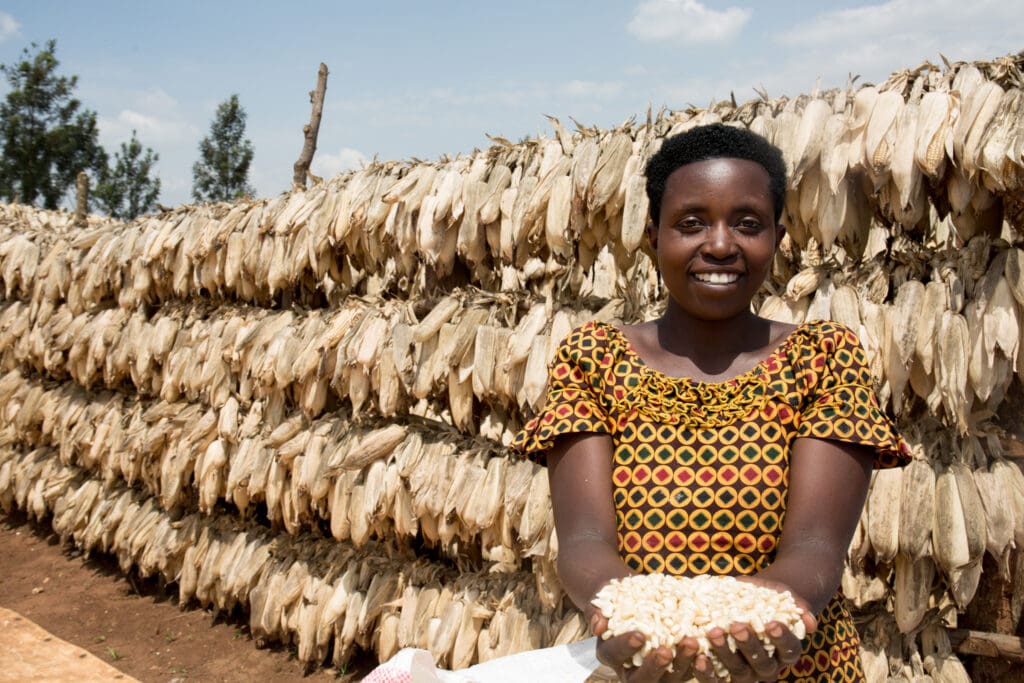
In the richer countries of the world, food gets wasted on the plate. In the poorer countries, the problem is a different one. Here, food is wasted in production, harvesting, processing and storage.
At the same time, 821 million people are suffering from hunger. Making production more effective, decreasing post-harvest loss and linking farmers to markets are all crucial elements in reducing food waste. This is why WFP has launched the Farm to Market Alliance (FtMA).
The aim is to increase productivity, profits and resilience among small-scale farmers, with assistance from WFP and other member organizations. By transforming small-scale farmers into reliable market players, they hopefully will be able to produce more and to sell better — thereby increasing their income.
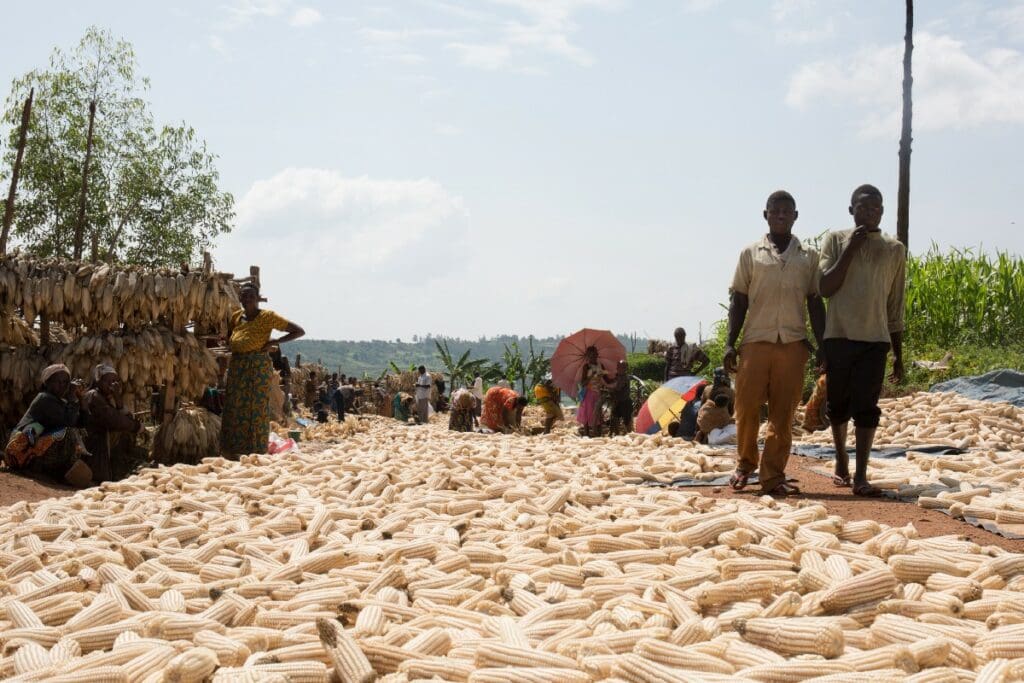
Thousands of ears of corn dry in the sun.
Farming is an important source of income in Rwanda — around 70 percent of the population works in the agricultural sector. But Rwanda is also one of Africa’s most densely populated countries and land is scarce, making it important to increase production levels.
The COMANYA Nyanza cooperative in southern Rwanda is one of the partners of the FtMA. Tons of corn are produced here, and the partnership has resulted in an increase in both production, sales and income for the members of the cooperative. The cooperative involves over 2,000 small-scale farmers at ten different sites.
‘’The FtMA has linked us to the markets and given us training on good agricultural practices. They have also helped us with the issue of post-harvest loss,’’ explains Uwimana Leonille, the vice president of the cooperative.
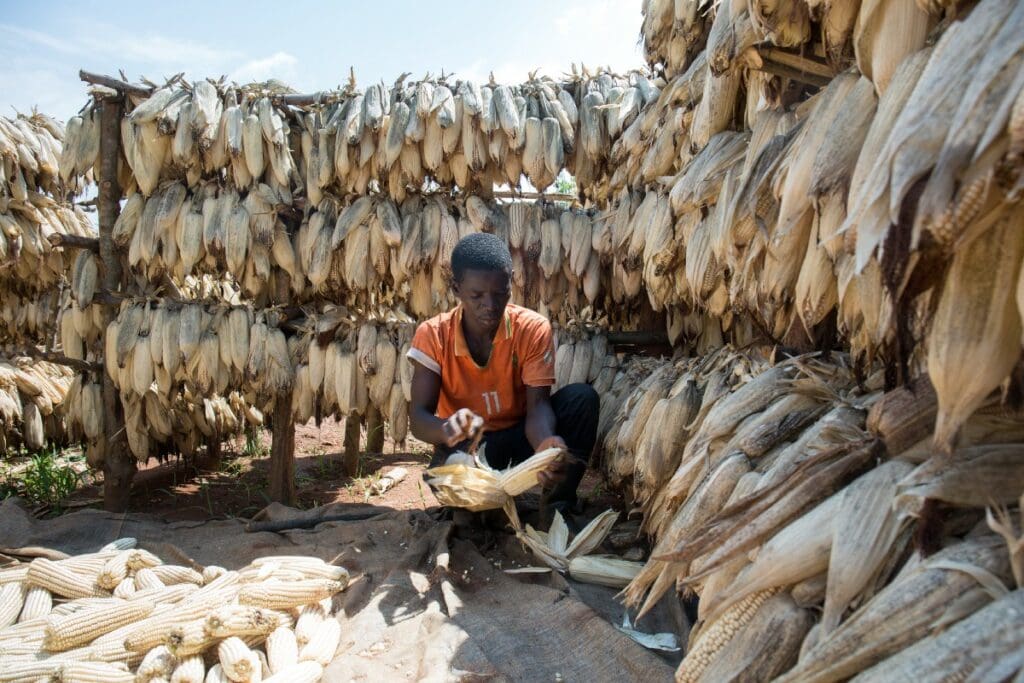
David Hagenimana has found shade to peel his corn. It is a lengthy process, especially since this cooperative has sold over 300 metric tons of corn.
Post-harvest loss is a major problem for food production in Rwanda, but the solutions are surprisingly simple. One of WFP’s solutions is to sell storage silos to cooperatives at a reduced price.
“Before, our post-harvest loss was about 30 percent. After the training that we have received from WFP, we are now down to around 10 percent’’, says Uwimana proudly.
The partnership involves more than good agricultural practices. The FtMA also links farmers to the markets, helping them with both establishing the contact and setting the right prices. The relationship and trust between the buyers and the farmers is built up over time. Trust can lead to increased investments and a more sustainable production and sale.
One investment from the buyers — to make post-harvest processing more efficient for this cooperative — has been to lend their machines to shell corn. Previously the grain was manually shelled and the long processing time often led to a deterioration of quality. Now this process can be done in a fraction of the time.
The FtMA is one of the ways in which WFP is helping people become resilient and self-reliant. The results are not only an increase in production, profits and good agricultural practices. More importantly, it is a way out of poverty.
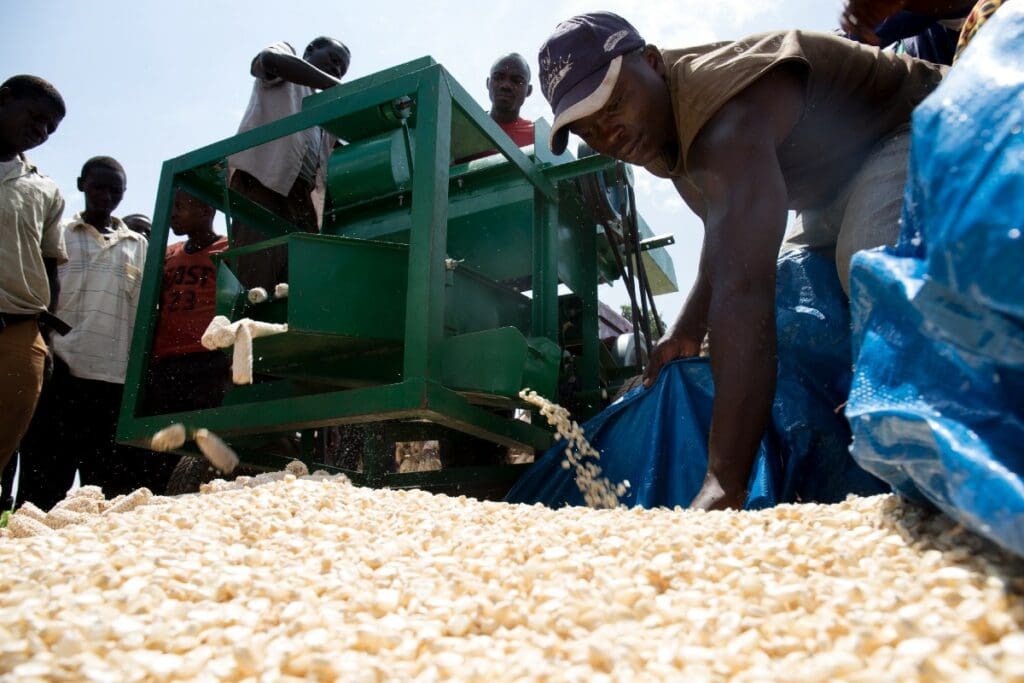
Using a corn sheller machine not only reduces the processing time but also protects the quality of the grain.
The reaction of farmers is testimony to the impact of the initiative.
Yvette Musabyimana, a mother of three, says her harvest is bigger now and her profits have increased:
“I have left poverty thanks to the partnership with the World Food Programme.”
Clementine Uwamahoro also has three children. She has bought animals to increase the production even more through fertilizing the land. The big change for her is the step towards self-sufficiency.
“I am now able to pay the tuition fees for my children and I can afford to give them food,’’ she explains.
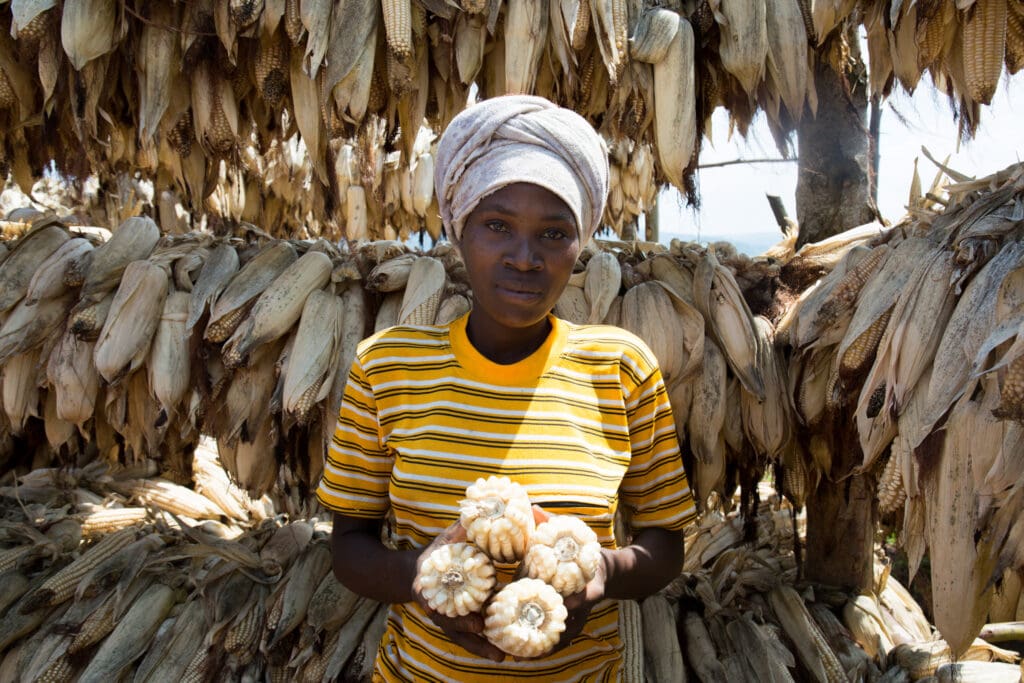

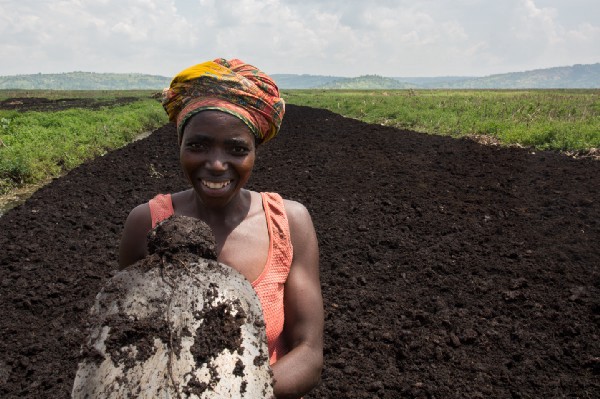
Fideline Ayinkamiye (top left), remembers the time before the Alliance was set up, when she and other farmers did not have access to any sustainable markets. She cites the health benefits for her family: “My income has increased. Me and my family can now afford to pay for health insurance. It is no longer a problem when we get sick, we can go to the doctor and get help.’’
Another farmer, Xaverine Cyiza, is still working in the fields at 83 years of age. The Alliance has brought her a welcome additional benefit. She explains: “I have worked as a farmer for 60 years. Since we went into the partnership with FtMA, there has been a big increase in yields and higher profits. I can now afford a health insurance.’’
Hydroponics, air-tight containers, recovery supply chains and virtual farmers markets. These are just a few of the innovations that allow communities to grow, sell and store food in impossible places.
WFP is one of eight global members of the Farm to Market Alliance (FtMA), which was formed to make crop markets work better for farmers by linking them to local and regional markets. Other members of the consortium are: Alliance for a Green Revolution in Africa (AGRA), Bayer Crop Science AG, Grow Africa, the International Finance Corporation (IFC), Rabobank, Syngenta Crop Protection AG and Yara International ASA.
FtMA aims to transform existing agricultural practices through four strategic pathways, providing smallholder farmers with access to affordable finance, quality farming inputs, predictable markets and effective post-harvest management and other agricultural technologies. The commitment of FtMA is to empower 1.5 million farmers across 10 countries by the year 2022 using this comprehensive value chain approach. FtMA is operating in Kenya, Rwanda, Tanzania and Zambia. Read more about how WFP supports small-scale farmers.
This story was written by Jonathan Eng and was originally published on WFP’s Insights.




